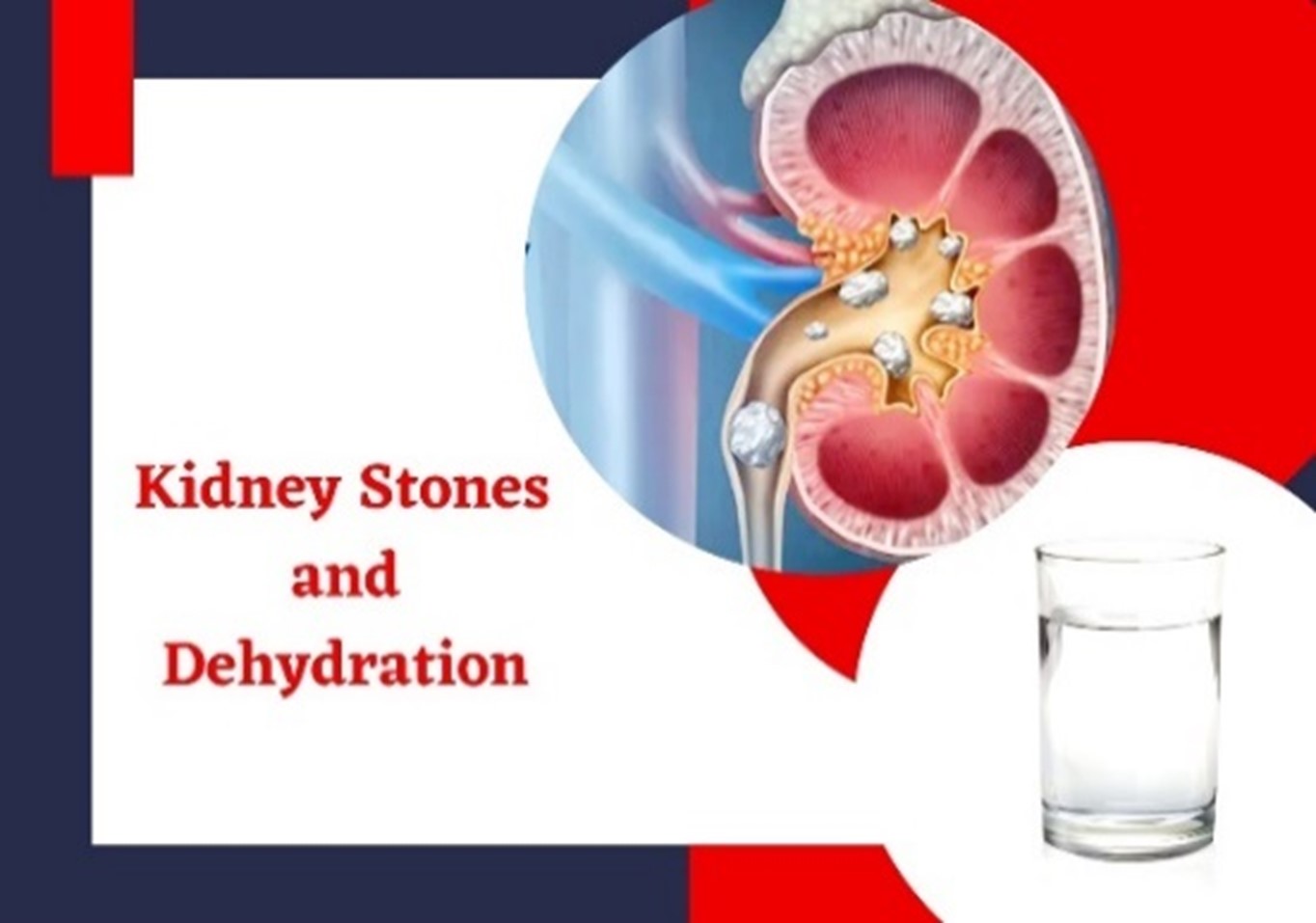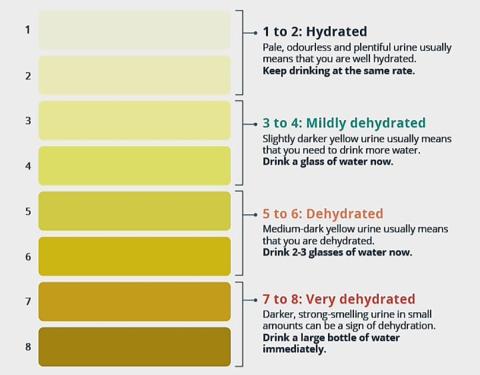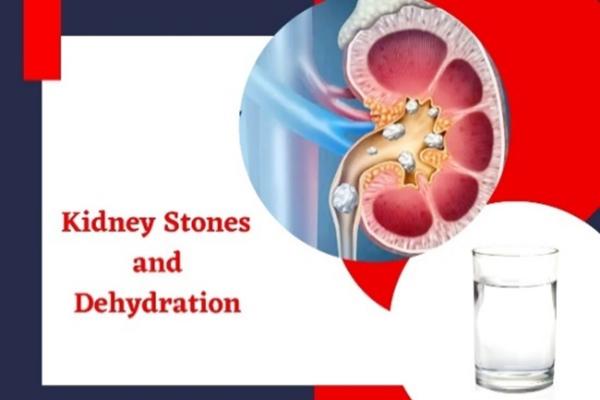
Steamship Mutual
Published: September 11, 2024
A century ago a famous explorer and mountaineer would gather the team with whom he was proposing to climb a Himalayan mountain and ask them to urinate into the snow before they set out on their expedition. If anyone’s urine was of too strong / dark a colour, he would ask them to leave the group immediately and descend. They had not, in his opinion, prepared adequately by taking on sufficient liquids to avoid dehydration and could therefore jeopardise the safety of the team.
It is not however only extreme sportsmen and women who need to guard against dehydration, we all do. Working or taking exercise in an increasingly warm or even hot environment in the face of climate change requires us to be increasingly aware of the dangers and consequences of dehydration.

Chart indicating by the colour of urine, the stages of dehydration:

The symptoms of short term dehydration include
- dark yellow, strong-smelling urine
- urinating less often than usual
- feeling dizzy or lightheaded
- feeling tired
- a dry mouth, lips and tongue
- sunken eyes
Long term or chronic dehydration is clearly linked to the very painful and debilitating production of kidney stones, treatment of which has been identified as a recurring and often expensive root cause for the medical repatriation of seafarers. Recent studies have shown conclusively that the formation of the first kidney stone in a patient is closely related to a history of reduced fluid intake and reduced volume of urine. The concentration of fluids within the kidneys encourages calcification of minerals and the formation of stones.
Kidney stones signs and symptoms
- Urine with blood
- Vomiting and nausea
- Burning sensation and pain while urinating
- Severe back pain which may not be confined to a single location due to movement of the stone from kidneys to urethra
The passing of a large kidney stone has been described as uncomfortable as giving birth.
If a seafarer is suffering from kidney stones then the condition will often require landing ashore for treatment and possible repatriation.
So, how do we avoid this debilitating condition?
Studies show conclusively that taking enough fluids is the best way to avoid the formation of kidney stones, and in particular the formation of the initial stone. After the first, there is an increased risk of forming another within the next five years, although the risk of this occurring is also reduced by correct hydration.
How much fluid should we take each day?
It is recommended that women should take on 2 to 2.5 litres a day and men 2.5 to 3 litres. In the case of extreme exertion, particularly in a hot environment or if taking exercise, then these amounts should be increased.
What should we drink?
Plain water is still the best beverage for keeping hydrated and flushing away the salts and chemicals from your body. Many other liquids can count towards your daily intake and perhaps surprisingly, milk is one of the best. This is because it contains such ingredients as sodium, often included in rehydration preparations.
Others include
- Coffee (regular or decaf)
- Tea
- Soups
- Orange and other concentrated fruit juices
- Lemon and lime juice.
- Coconut water
Coffee and tea are diuretics, but that does not mean that they are not useful in the process of preventing kidney stones, just that they need to be supplemented by other liquids that are retained for longer or combine with calcium in the kidneys. Lemon and lime juice are very effective for this.
Drinks to avoid are those which include added sugars such as colas and sports drinks.
To conclude, the best advice is to routinely take onboard 2.5 to 3 litres of liquids each day, and more if working in a hot environment or taking strenuous exercise.
Further advice is to avoid being overweight and to try and follow a diet which is rich in fibre, fruits and vegetables.
Diabetes and Kidney Stones
Studies show that people with type 2 diabetes have a 60% higher chance of developing kidney stones than those without this condition. Diabetes commonly causes a build up of uric acid and the formation of uric acid stones. The most common causes of diabetes are obesity and inactivity and so, in order to avoid stones, we must add to the need for remaining hydrated, the requirement to maintain an appropriate BMI and to take regular exercise appropriate to our age and stature.
It is particularly important for seafarers to avoid kidney stones as they may be some distance from medical assistance. This can be achieved by
- Hydration
- Maintaining an appropriate BMI
- Taking regular exercise
- Following a diet rich in fibre, fruit and vegetables.
With thanks to the Club’s independent UK-based medical consultants, Medical Rescue International (MRI), for developing these important guidelines.
Supportive Information
For further information on this or other Loss Prevention topics please contact the Loss Prevention Department, Steamship Insurance Management Services Ltd.
Tel: +44 20 7247 5490 Email:[email protected]


